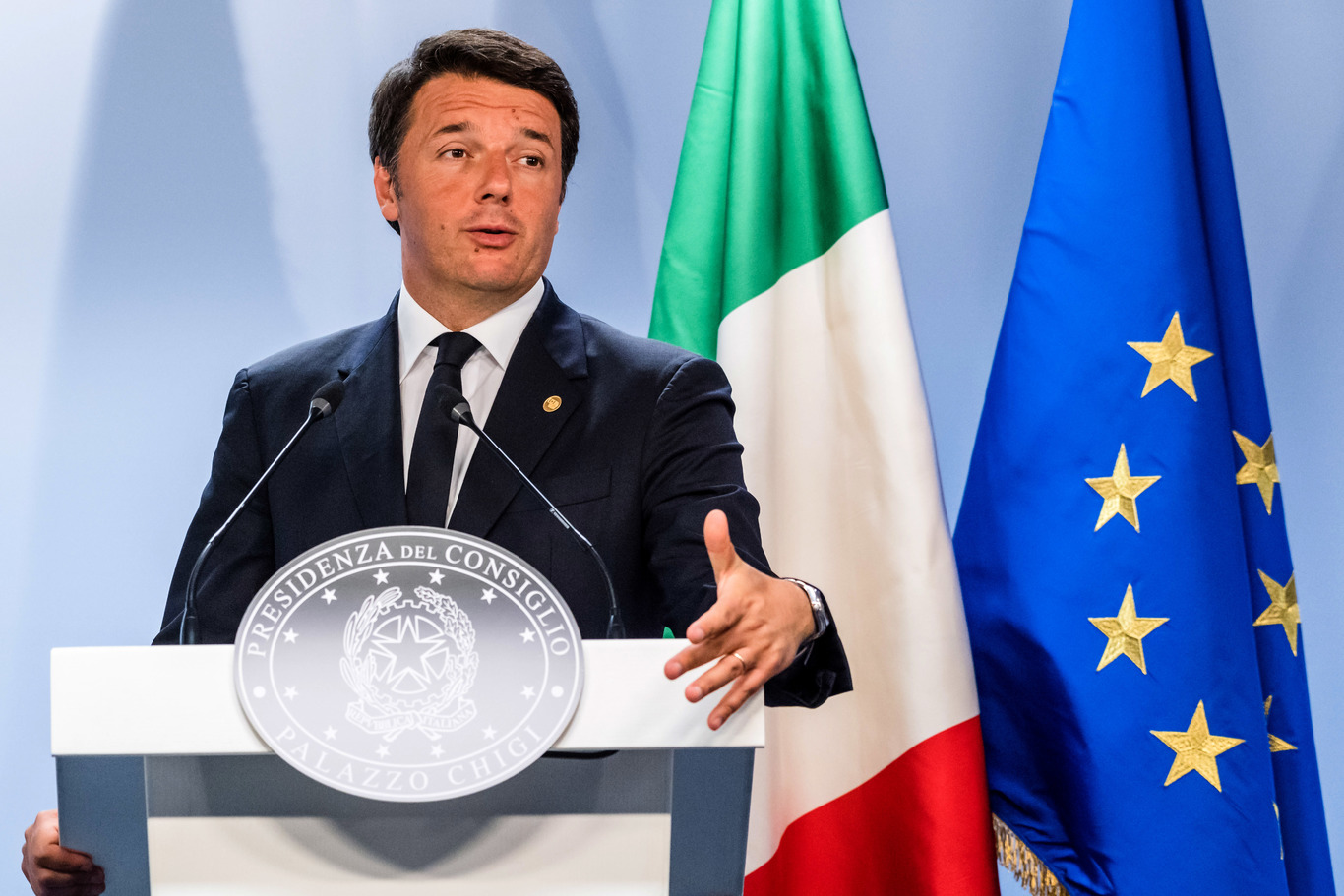Your crash course in...How a referendum in Italy could wreck the EU
An esteemed economist warned the vote could be disastrous for the union.
A BIG VOTE will take place at the end of this year, one that could have major economic consequences – and it has nothing to do with Donald Trump.
Italy’s prime minister Matteo Renzi has put his career on the line à la David Cameron for a referendum to decide on a major overhaul of the country’s political system.
After decades of corruption and instability – no Italian government has stood a full term since the second world war – Renzi has proposed the first major shake-up of Italy’s constitution in 70 years.
Voters will be asked whether they approve of a series of amendments that the ‘yes’ side argues would make it easier to pass legislation.
Vacuum
Renzi, leader of the centre-left Democratic Party, said he will step down as prime minister if his side loses, which could spiral Italy into political chaos once again and open up a vacuum for populist parties.
A vote in favour of the referendum would see the country’s upper house shrink from 315 seats to 100, and would see significant power shifted from Italy’s regional areas to Rome. There would also be a limit on how much time parliament has to discuss a new bill or amendment.
Opponents – including the popular, anti-establishment Five Star Movement party – say the referendum is poorly worded and that the proposed changes are undemocratic.
 Five Star Movement founder Beppe Grillo
Five Star Movement founder Beppe Grillo
Investors are spooked, namely because a defeat would give a boost to the Five Star Movement, which wants Italy to exit the eurozone.
Things aren’t looking too good for those who want to see Renzi remain in power: a survey by the IPR Marketing Institute in July showed that 52% oppose the reforms, while 48% are in favour.
To add to the uncertainty, nobody knows exactly when the Italian electorate will go to the polls. Initially, the vote was slated for October. Then it was pushed back to November. Now it looks like it won’t take place until the first week of December.
With that in mind, let’s look at what risk the referendum poses to Italy’s economy and the wider EU project.
‘A cataclysmic event’
In a recent interview with Business Insider, Nobel prize-winning economist Joseph Stiglitz said that Italy could be the “cataclysmic event” that leads to the collapse of the EU.
Stiglitz – who recently published the book, The Euro: How a Common Currency Threatens the Future of Europe – said the referendum is “a big risk” and could be a “disastrous” political event for the European project.
He explained that “the eurozone’s member countries are democracies and one sees increasing hostility to the euro, which is unfortunately spilling over to a broader hostility to the broader European project and liberal values.”
 Economist Jospeph Stiglitz
Economist Jospeph Stiglitz
He argued that Italy’s referendum is not just about constitutional changes, but Renzi’s credibility as a leader – similar to how UK voters used the Brexit vote to show their dissatisfaction with David Cameron and establishment politics.
Stiglitz said that the only option to ensure future stability for Europe was to abandon the referendum altogether.
The economist – who was an advisor to Bill Clinton’s administration – told Business Insider: ”(There is an argument) to make (Renzi) step down from holding the referendum and say that the Brexit has led to a whole change in the debate about the future democracy in Europe.
“My feeling is that for anybody concerned about avoiding a disastrous outcome, there needs to be a climb down. Otherwise we’re heading towards another cataclysmic event.”
Even though he has changed the polling date multiple times, it is unlikely that Renzi will call off the referendum at this late stage.
Risk
Even in light of Stiglitz’s stark warning, it is difficult to determine how much of a threat the referendum actually poses to the union.
Valentin Marinov, a strategist at the French bank Credit Agricole, told Bloomberg in July: “Any outcome of the referendum that is seen as destabilising the status quo could add to the headwinds for the Italian economy and the euro.”
That same month, analysts at global banking group Citi said Italy’s vote was “the single biggest risk on the European political landscape this year”, excluding Brexit.
However, earlier this week, the group backtracked on its bold statement.
A research note issued by Citi said that analysts now believe that “nothing would change in Italy’s institutional setting” if Renzi was defeated – the constitutional reform would simply be scrapped.
It said the complications in the upper house would still have to be addressed to avoid high risks of hung parliaments before 2018, which would actually reduce the likelihood of an early election in 2017.
 Italian prime minister Matteo Renzi
Italian prime minister Matteo Renzi
Citi argued that Renzi could still win a vote of confidence if he lost “given the lack of an obvious alternative prime minister within the current parliamentary majority”.
Pundits also speculate that Renzi’s promise to step down is a bluff, which takes the drama out of the vote.
The prime minister told Italian media last week that there would be no early elections, even if he loses, which suggests that his government will try to cling to power, regardless of the result.
There is bound to be some political and economic consequences if the referendum is defeated, but it is difficult to determine exactly how wide-reaching the impact will be.






